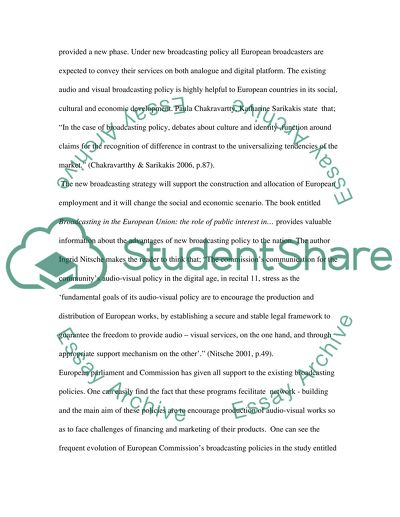Cite this document
(The Policies of the European Union in Broadcasting Term Paper, n.d.)
The Policies of the European Union in Broadcasting Term Paper. Retrieved from https://studentshare.org/media/1568613-analyse-the-policies-of-the-european-union-in-broadcasting-include-in-your-answer-some-reflection-on-why-transnational-broadcasting-has-largely-failed-in-europe
The Policies of the European Union in Broadcasting Term Paper. Retrieved from https://studentshare.org/media/1568613-analyse-the-policies-of-the-european-union-in-broadcasting-include-in-your-answer-some-reflection-on-why-transnational-broadcasting-has-largely-failed-in-europe
(The Policies of the European Union in Broadcasting Term Paper)
The Policies of the European Union in Broadcasting Term Paper. https://studentshare.org/media/1568613-analyse-the-policies-of-the-european-union-in-broadcasting-include-in-your-answer-some-reflection-on-why-transnational-broadcasting-has-largely-failed-in-europe.
The Policies of the European Union in Broadcasting Term Paper. https://studentshare.org/media/1568613-analyse-the-policies-of-the-european-union-in-broadcasting-include-in-your-answer-some-reflection-on-why-transnational-broadcasting-has-largely-failed-in-europe.
“The Policies of the European Union in Broadcasting Term Paper”. https://studentshare.org/media/1568613-analyse-the-policies-of-the-european-union-in-broadcasting-include-in-your-answer-some-reflection-on-why-transnational-broadcasting-has-largely-failed-in-europe.


